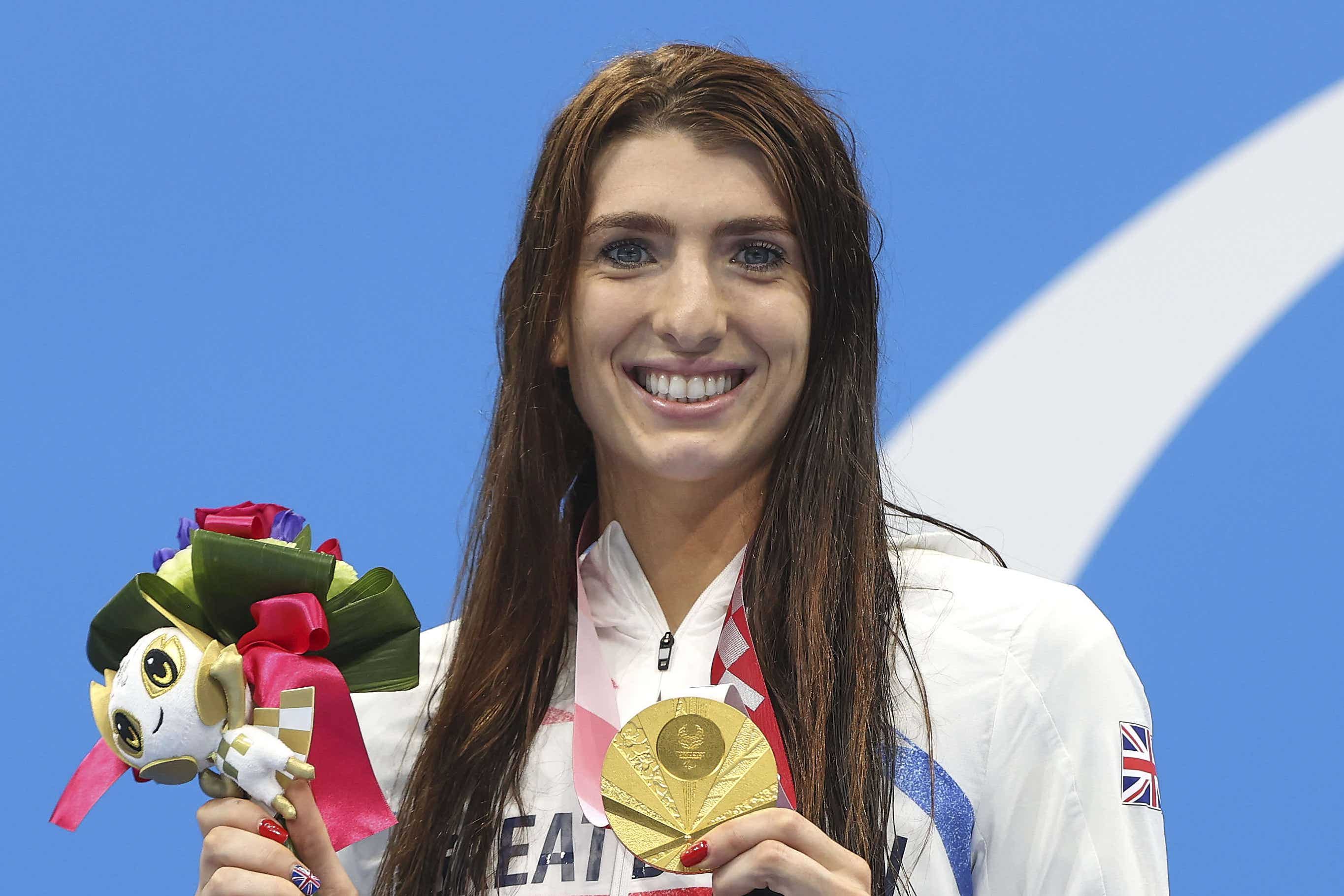Bethany Firth: Society needs to be more understanding of hidden disabilities
The 27-year-old competes in the S14 classification for athletes with intellectual impairments.

Your support helps us to tell the story
From reproductive rights to climate change to Big Tech, The Independent is on the ground when the story is developing. Whether it's investigating the financials of Elon Musk's pro-Trump PAC or producing our latest documentary, 'The A Word', which shines a light on the American women fighting for reproductive rights, we know how important it is to parse out the facts from the messaging.
At such a critical moment in US history, we need reporters on the ground. Your donation allows us to keep sending journalists to speak to both sides of the story.
The Independent is trusted by Americans across the entire political spectrum. And unlike many other quality news outlets, we choose not to lock Americans out of our reporting and analysis with paywalls. We believe quality journalism should be available to everyone, paid for by those who can afford it.
Your support makes all the difference.Six-time Paralympic champion Bethany Firth believes society needs to become more understanding of “hidden disabilities” after revealing her memory issue makes life similar to the plot of the film 50 First Dates.
Northern Irish swimmer Firth competes in the S14 classification for athletes with intellectual impairments and is unable to remember some of her many successes in the pool due to her condition.
The 27-year-old, who is preparing to defend her 100m backstroke, 200m freestyle and 200m individual medley titles at the Allianz Para Swimming World Championships in Manchester next week, overcame insecurities about her disability through involvement in sport.
Yet consistently recalling information remains an ongoing challenge for the multiple world-record holder, who likens it to the 2004 romantic comedy starring Adam Sandler in which Drew Barrymore’s character suffers short-term amnesia on a daily basis.
“Some days I can remember stuff, some days I can’t,” Firth told the PA news agency.
“It’s a bit like 50 First Dates – you don’t know what I am going to retain and what I’m not.
“My coach (Nelson Lindsay) finds it very hard because one day I can be knowing all of these drills and then he says to me the next day you’ve already done that, let’s do it again and I have no clue.
“In every day life, I struggle a bit with trust because I will see pictures of myself doing something and it is me but I can’t remember or I have no connection to that.
“There are just lots of little things that add up that people don’t notice because everyone just sees you as this normal person that can do everything.
“Everyone has their own struggles and we need to be a lot more aware that maybe that person is taking a wee bit longer to pay because they’re not understanding how much they need to give. Or maybe that person needs just a bit more time to understand what that person’s just said.
“Hidden disabilities are so common nowadays. It’s a bit like mental health – you can’t see what’s going on in someone’s life and people are very good at hiding it.
“We need to be a bit more understanding that we don’t know what’s happening in someone’s life.”
Firth burst on to the scene aged 16 by winning 100m backstroke gold for Ireland at London 2012.
She added a further five Paralympic golds and three silvers to her collection across Rio 2016 and Tokyo 2020 after switching allegiance to Great Britain, in addition to last year claiming the Commonwealth 200m freestyle title for Northern Ireland.
Firth, from Seaforde, County Down, has learnt to deal with the demands of having a target on her back and is focused on times rather than medals ahead of competing at Manchester Aquatics Centre and moving on to Paris 2024.
At Paris I want to beat all my PBs. I am hoping this week will give me a really good step towards doing that
“It’s always a mixed bag when you go into a competition because you’re always the one people want to beat, so there’s always a bit of pressure there,” she said.
“I haven’t PB’d since 2016. I’ve always had an injury. Last year I broke my foot, the year before that I had shoulder injuries.
“For me, it’s not always about the medals. It’s actually about my performance and I really want to push on with my own performance and not just stay at the same sort of level.
“At Paris I want to beat all my PBs. I am hoping this week will give me a really good step towards doing that.”